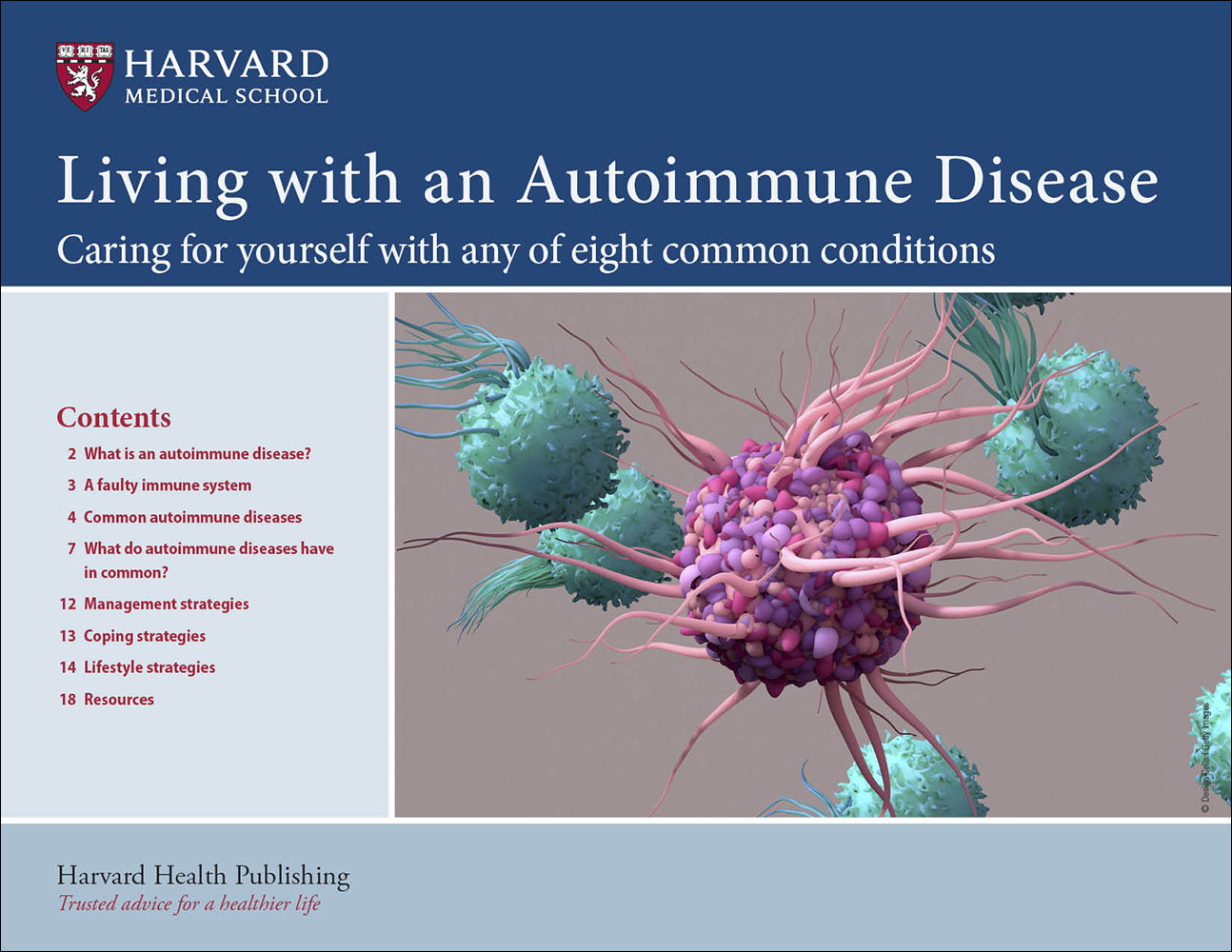A heart disease trigger that lurks inside bone marrow
Researchers are unraveling the mysteries of this recently recognized risk factor, which goes by the acronym CHIP.
- Reviewed by Christopher P. Cannon, MD, Editor in Chief, Harvard Heart Letter; Editorial Advisory Board Member, Harvard Health Publishing

Every day, stem cells in our bone marrow churn out tens of thousands of progeny that replenish the white and red blood cells that circulate throughout the body. But as we age, spontaneous genetic mutations can arise in these bone marrow cells. These mutated cells then make multiple copies (clones), a process known as clonal hematopoiesis.
By age 70, about 10% to 20% of people have clonal hematopoiesis, and the prevalence of this condition rises steeply with increasing age. Although it can predispose people to leukemia and related cancers, most people with it remain cancer-free and never even know they have clonal hematopoiesis. But over the past decade or so, scientists have discovered that one form-called clonal hematopoiesis of indeterminate potential (CHIP)-is associated with an increased risk of cardiovascular disease.
Dr. Peter Libby, the Mallinckrodt professor of medicine at Harvard Medical School, has published numerous articles about CHIP. In 2020, he established one of the nation's few CHIP-cardiovascular disease clinics at Brigham and Women's Hospital. Below, he explains more about this burgeoning field of study.
Q. What causes the mutations that occur in people with CHIP?
A. These mutations are not the type that we inherit from our parents, which are known as germline mutations. Rather, they are somatic mutations, which arise later in life spontaneously or due to environmental factors. We're exposed to environmental mutagens like air pollution, cosmic radiation, and chemicals throughout our lives. That's a major reason why these mutations accumulate and become more common with age. Many cases of cancer are thought to stem from somatic mutations. In fact, there are more than 40 such mutations linked to leukemia, a blood cancer that typically affects white blood cells. But because you need at least three distinct mutations in the same clone to develop full-blown leukemia, rates of this cancer are less than 1% per year among people with CHIP.
Q. What's the connection to heart disease?
A. The link was discovered more than a decade ago by Dr. Benjamin Ebert, who is now CEO of Harvard-affiliated Dana-Farber Cancer Institute. While researching the origins of leukemia, he found people without leukemia who had just one or two of the leukemia-associated mutations. It turns out that some of these mutations increase the risk of cardiovascular disease. That's why we refer to these cells as having "indeterminate potential," since they may never cause overt disease.
Some of these mutations relate clearly to inflammation, a well-known contributor to the formation of fatty plaque inside arteries. But different mutations have different mechanisms of action, and people can have different burdens-that is, amounts-of mutated cells. This diversity means it's going to be devilishly hard to do rigorous clinical trials, but we're working on it.
Several large, long-term studies of heart disease have included genetic testing that reveals CHIP. Based on these data, it's been estimated that CHIP is associated with a twofold increase in risk for coronary artery disease and a more than 2.5-fold increase in risk for stroke.
Q. How do people discover they have CHIP?
A. Routine screening for CHIP is not currently recommended for healthy people. CHIP is most commonly discovered during genetic testing for cancer or blood-related disorders, such as smoldering myeloma, a precancerous condition marked by a buildup of abnormal plasma cells in the bone marrow. People with a family history of cancer may also undergo testing for CHIP. Some very health-conscious people pay to have their entire genomes sequenced and then find out they have CHIP.
Q. How do you treat people in your CHIP clinic?
A. At present, there aren't any proven specific therapies for CHIP. I reinforce the importance of a healthy diet and regular exercise, as I do for everyone I counsel. Unless a person has signs or symptoms of a cardiovascular problem, we don't recommend routine stress testing or imaging tests. But people with CHIP likely benefit from careful monitoring and aggressive treatment of all heart-related risk factors, such as blood pressure and cholesterol.
Q. What are your hopes for the future of this field?
A. We're learning so much biology and fundamental science that has helped us understand the links between aging, heart disease, and cancer that were unsuspected just a few years ago. The hope is that as we discover more, we'll develop genetically directed therapies to address the various specific mutations that cause CHIP.
Image: © ttsz/Getty Images
About the Author

Julie Corliss, Executive Editor, Harvard Heart Letter
About the Reviewer

Christopher P. Cannon, MD, Editor in Chief, Harvard Heart Letter; Editorial Advisory Board Member, Harvard Health Publishing
Disclaimer:
As a service to our readers, Harvard Health Publishing provides access to our library of archived content. Please note the date of last review or update on all articles.
No content on this site, regardless of date, should ever be used as a substitute for direct medical advice from your doctor or other qualified clinician.
















